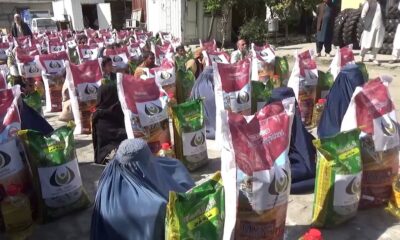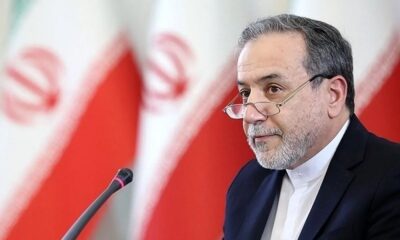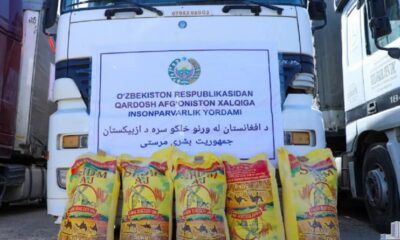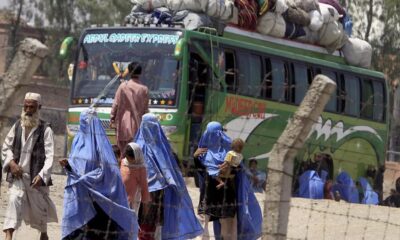World
US believes Hamas, Israel can break Gaza ceasefire impasse; Israeli forces cut Rafah aid route
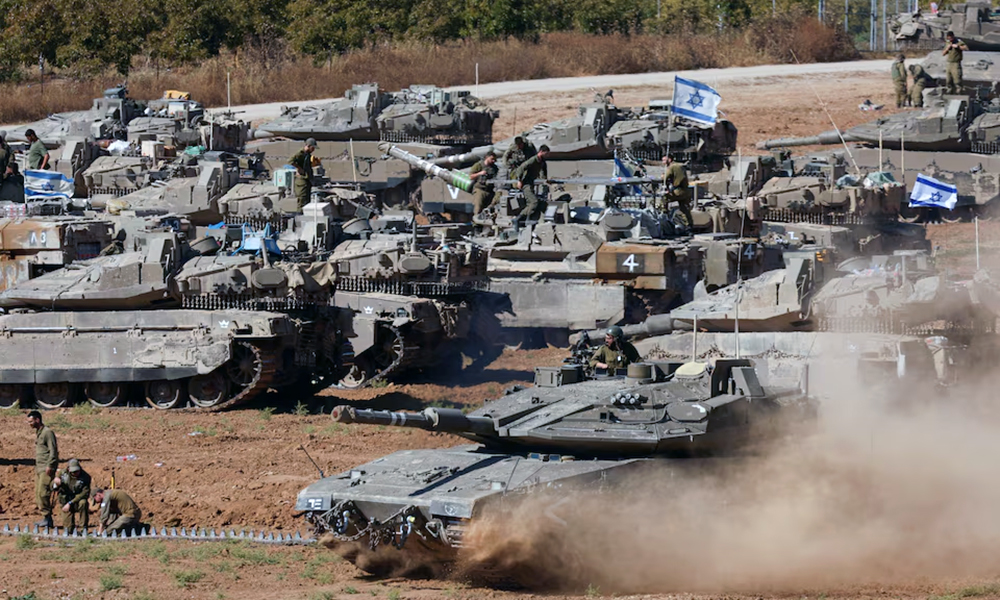
The U.S. said negotiations on a Gaza ceasefire should be able to close the gaps between Israel and Hamas while Israeli forces seized the main border crossing in Rafah on Tuesday, closing a vital route for aid, Reuters reported.
Hamas official Osama Hamdan, speaking to reporters in Beirut, warned that if Israel’s military aggression continued in Rafah, there would be no truce agreement.
The Palestinian militant group accused Israel of undermining ceasefire efforts in the seven-month-long war that has laid waste to Gaza and left hundreds of thousands of its people homeless and hungry.
The truce comments came as Israel invaded Rafah, a southern Gazan city where more than one million displaced Palestinian civilians have sought shelter from Israel’s offensive throughout the tiny territory.
White House spokesperson John Kirby said Hamas offered amendments on Monday to an Israeli proposal aimed at ending the impasse. The deal text, as amended, suggests the remaining gaps can “absolutely be closed,” he said. He declined to specify what those were.
Israel on Monday said a three-phase proposal that Hamas approved was unacceptable.
Kirby said mediators from Qatar and Egypt along with U.S. and Israeli officials were gathering in Cairo. Hamas separately said its delegation was in Cairo as well.
OFFENSIVE
Israel’s seizure of the Rafah crossing came despite weeks of calls that the U.S., other nations and international bodies hoped would deter a big offensive in the Rafah area – which Israel says is Hamas fighters’ last stronghold, read the report.
Israeli army footage showed tanks rolling through the Rafah crossing complex between Gaza and Egypt, and the Israeli flag raised on the Gaza side.
Israeli Prime Minister Benjamin Netanyahu said seizing the crossing was a “very significant step” toward Israel’s stated aim of destroying Hamas’s military capabilities.
Residents reported heavy tank shelling on Tuesday evening in some areas of eastern Rafah. A Rafah municipal building caught fire after Israeli shelling, residents and Hamas media said. Medics said one Palestinian was killed and several wounded in the building while an Israeli strike also killed two Palestinians on a motorcycle.
Health officials said Abu Yousef Al-Najar, the main hospital in Rafah, closed on Tuesday after heavy bombardment nearby led medical staff and around 200 patients to flee, Reuters reported.
“They have gone crazy. Tanks are firing shells and smoke bombs cover the skies,” said Emad Joudat, 55, a Gaza City resident displaced in Rafah.
“I am now seriously thinking of heading north, maybe to the central Gaza area. If they move further into Rafah, it will be the mother of massacres,” he told Reuters via a chat app.
Many of those in Rafah were previously displaced from other parts of Gaza following Israel’s orders to evacuate from there.
Families have been crammed into tented camps and makeshift shelters, suffering from shortages of food, water, medicine and other essentials.
The U.N. and other international aid agencies said the closing of the two crossings into southern Gaza – Rafah and Israeli-controlled Kerem Shalom – had virtually cut the enclave off from outside aid and very few stores were available inside.
Red Crescent sources in Egypt said shipments had completely halted. “These crossings are a lifeline… They need to be reopened without any delay,” Philippe Lazzarini, head of U.N. aid agency UNRWA, said on X.
Separately, Jordan said Israeli settlers attacked a humanitarian convoy on its way to a crossing in northern Gaza.
The White House said it had been told the Kerem Shalom crossing would re-open on Wednesday and fuel deliveries through Rafah would resume then too.
U.N. Secretary-General Antonio Guterres appealed to Israel and Hamas to spare no effort to get a truce deal. “Make no mistake – a full-scale assault on Rafah would be a human catastrophe,” Guterres said.
‘PANIC AND DESPAIR’
Israel’s military said it was conducting a limited operation in Rafah to kill fighters and dismantle infrastructure used by Hamas, which runs Gaza. It told civilians to go to what it calls an “expanded humanitarian zone” some 20 km (12 miles) away.
In Geneva, U.N. humanitarian office spokesperson Jens Laerke said “panic and despair” were gripping the people in Rafah.
Civilians did not have enough time to prepare for evacuation and no safe route to travel, he said. The roads are “littered with unexploded ordnance, massive bombs lying in the street. It’s not safe,” he said.
Critics of the Gaza war have urged U.S. President Joe Biden to pressure Israel to change course. The U.S., Israeli’s closest ally and main weapons supplier, has delayed some arms shipments to Israel for two weeks, according to four sources on Tuesday.
The White House and Pentagon declined comment, but this would be the first such delay since the Biden administration offered its full support to Israel after Hamas’ Oct. 7 attack, read the report.
Israel’s offensive has killed 34,789 Palestinians, most of them civilians, in the conflict, the Gaza Health Ministry said.
The war began when Hamas militants attacked Israel on Oct. 7, killing about 1,200 people and abducting about 250 others, of whom 133 are believed to remain in captivity in Gaza, according to Israeli tallies.
Any truce would be the first pause in fighting since a week-long ceasefire in November during which Hamas freed around half of the hostages and Israel released 240 Palestinians it was holding in its jails.
Since then, all efforts to reach a new truce have foundered over Hamas’ refusal to free more hostages without a promise of a permanent end to the conflict, and Israel’s insistence that it would discuss only a temporary pause.
World
Putin and Trump may have spoken more than twice, Kremlin says
Washington Post journalist Bob Woodward in his 2024 book “War” reported that Trump had direct conversations as many as seven times with Putin after he left the White House in 2021.

Russian President Vladimir Putin and U.S. President Donald Trump may have had more contacts than the two publicly announced telephone calls over recent months, the Kremlin said in video footage published by state television on Sunday.
Trump, who says he wants to be remembered as a peacemaker, has repeatedly said that he wants the three-year conflict in Ukraine to end and has warned of the risks of it escalating into a world war between the United States and Russia.
There have so far been two announced phone calls between Putin and Trump this year – on Feb. 12 and on March 18 – though there has been speculation about much more frequent contact, and also reports that they spoke before Trump was elected last year.
When asked by the most prominent Kremlin correspondent for state television about remarks by Trump that indicated there may have been more than two calls, Kremlin spokesman Dmitry Peskov said information had been released about those calls he knew of.
“Listen, we inform you about the conversations that we are aware of. But we can’t rule out everything else,” Peskov said.
State television’s Pavel Zarubin then asked: “So all sorts of nuances are possible as they say?” to which Peskov replied: “Well, that is how I would answer your question.”
The contacts between Trump and Putin have spooked European leaders who fear the United States could be turning its back on Europe in the hope of striking a peace deal with Russia as part of some broader grand bargain encompassing oil prices, the Middle East and competition with China.
Trump told the Washington Examiner, that he had been speaking to the Russian leader for weeks.
Before the contacts with Trump, Putin last spoke to a sitting U.S. president in February 2022, when he and Joe Biden spoke shortly before the Russian leader ordered tens of thousands of troops into Ukraine.
Washington Post journalist Bob Woodward in his 2024 book “War” reported that Trump had direct conversations as many as seven times with Putin after he left the White House in 2021.
Asked if that were true in an interview to Bloomberg last year, Trump said: “If I did, it’s a smart thing.” The Kremlin denied Woodward’s report.
Reuters, The Washington Post and Axios reported separately that Trump and Putin spoke in early November. The Kremlin also denied those reports.
Putin and Trump may have another phone call if Ukraine continues strikes on Russian energy infrastructure, Peskov said.
Putin agreed to the suspension of such attacks in a phone call with Trump last week. Kyiv, which has said it would be willing to take part in such a partial ceasefire if a document setting out its terms is agreed, has accused Russia of not abiding by Putin’s order, something Moscow denies.
“While the Russian side has been sticking to its word for several days now, the word that the president gave, and to the president’s command, which immediately came into force and was immediately implemented, and is still being implemented, the same cannot be said of the Kyiv regime”, Peskov said.
Russia and Ukraine accused each other on Friday of blowing up a Russian gas pumping station in a border area where Ukrainian troops have been retreating. Russia said on Saturday it reserves the right to a “symmetrical response” to Ukrainian attacks on Russian energy facilities.
Asked if Ukraine’s violation of the agreement may become a reason for another Putin-Trump call, Peskov said: “Absolutely. The presidents confirmed their intention to continue contacts as necessary.”
In another clip released on Zarubin’s Telegram channel earlier on Sunday, Peskov said the latest phone call between Putin and Trump was “a step towards a face-to-face meeting”, adding that Russia-U.S. talks in Riyadh scheduled for Monday would also be such a step, Interfax news agency reported.
World
Thousands of federal agents diverted to Trump immigration crackdown
Trump’s hardline approach to deporting immigrants has intensified America’s already-stark partisan divide
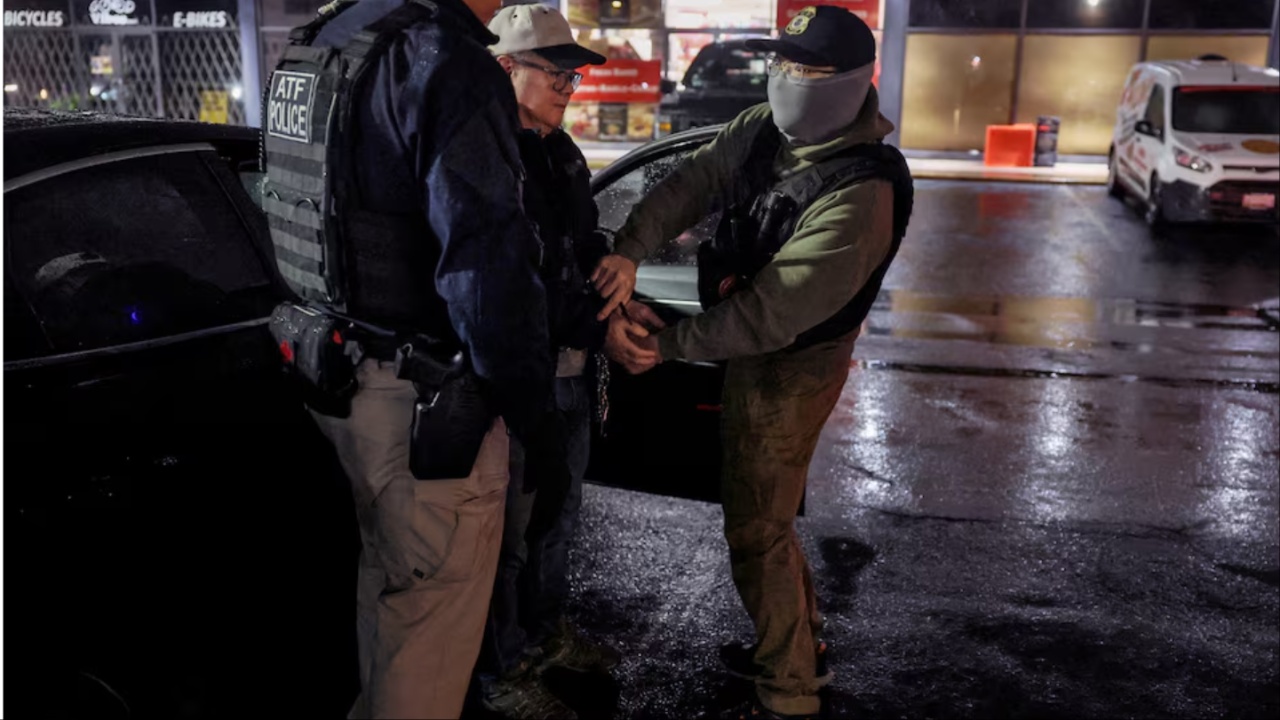
Federal agents who usually hunt down child abusers are now cracking down on immigrants who live in the U.S. illegally, Reuters reported.
Homeland Security investigators who specialize in money laundering are raiding restaurants and other small businesses looking for immigrants who aren’t authorized to work and agents who pursue drug traffickers and tax fraud are being reassigned to enforce immigration law.
As U.S. President Donald Trump pledges to deport “millions and millions” of “criminal aliens,” thousands of federal law enforcement officials from multiple agencies are being enlisted to take on new work as immigration enforcers, pulling crime-fighting resources away on other areas — from drug trafficking and terrorism to sexual abuse and fraud, Reuters reported Sunday.
This account of Trump’s push to reorganize federal law enforcement – the most significant since the September 11, 2001, terrorist attacks – is based on interviews with more than 20 current and former federal agents, attorneys and other federal officials.
Most had first-hand knowledge of the changes. Nearly all spoke on the condition of anonymity because they were not authorized to discuss their work.
“I do not recall ever seeing this wide a spectrum of federal government resources all being turned toward immigration enforcement,” said Theresa Cardinal Brown, a former Homeland Security official who has served in both Republican and Democratic administrations.
“When you’re telling agencies to stop what you’ve been doing and do this now, whatever else they were doing takes a back seat.”
In response to questions from Reuters, Homeland Security Assistant Secretary Tricia McLaughlin said the U.S. government is “mobilizing federal and state law enforcement to find, arrest, and deport illegal aliens.”
The Federal Bureau of Investigation declined to respond to questions about its staffing.
In a statement, the FBI said it is “protecting the U.S. from many threats.”
The White House did not respond to requests for comment.
The Trump administration has offered no comprehensive accounting of the revamp. But it echoes the aftermath of the 2001 attacks, when Congress created the Department of Homeland Security that pulled together 169,000 federal employees from other agencies and refocused the FBI on battling terrorism.
Trump’s hardline approach to deporting immigrants has intensified America’s already-stark partisan divide.
The U.S. Senate’s No. 2 Democrat, Dick Durbin, described the crackdown as a “wasteful, misguided diversion of resources.”
In a statement to Reuters, he said it was “making America less safe” by drawing agents and officials away from fighting corporate fraud, terrorism, child sexual exploitation and other crimes.
U.S. Deputy Attorney General Todd Blanche, in an interview with Reuters, denied the changes across federal law enforcement were hindering other important criminal investigations.
“I completely reject the idea that because we’re prioritizing immigration that we are not simultaneously full-force going after violent crime.”
He said the crackdown was warranted. “President Trump views what has happened over the last couple years truly as an invasion, so that’s how we’re trying to remedy that.”
On January 20, his first day back in office, Trump signed an executive order, directing federal agencies to team up to fight “an invasion” of illegal immigrants. He cast the nation’s estimated 11 million immigrants in the U.S. illegally as the driving factor behind crime, gang violence and drug trafficking – assertions not supported by government statistics, – and accused immigrants of draining U.S. government resources and depriving citizens of jobs.
Almost immediately, federal law enforcement started posting photos of the crackdown to social media: agents wore body armor and jackets emblazoned with names of multiple agencies – including the FBI, Drug Enforcement Administration, and the Bureau of Alcohol, Tobacco, Firearms and Explosives, known as ATF – during raids on immigrants without proper legal status.
Before this year, ATF had played almost no role in immigration enforcement. It typically investigated firearms offenses, bombings, arson and illicit shipments of alcohol and tobacco.
But since Trump’s inauguration, about 80% of its roughly 2,500 agents have been ordered to take on at least some immigration enforcement tasks, two officials familiar with ATF’s operations said. The ATF agents are being used largely as “fugitive hunters” to find migrants living in the U.S. illegally, one of the officials said.
The DEA, whose roughly 10,000 staff have led the nation’s efforts to battle drug cartels, has shifted about a quarter of its work to immigration operations, said a former official briefed by current DEA leaders on the changes. Two other former officials described the commitment as “substantial” but did not know precisely how much work shifted.
Many of the reassigned federal officials have had little training or experience in immigration law, the sources said.
The results, so far, are mixed: the number of migrants seeking to cross the southern U.S. border in February was the lowest in decades and the number of people detained over immigration violations has surged. That hasn’t yet led to an increase in deportations, but experts expect a jump in those numbers in coming months.
World
Uganda military says it killed 242 rebels in east Congo this week

Uganda’s army said it killed 242 fighters belonging to a Congolese rebel group known as CODECO after they attacked a Ugandan military camp across the border in east Congo earlier this week, a claim disputed by the group.
Uganda military spokesperson Chris Magezi said hundreds of CODECO fighters attacked a Uganda Peoples’ Defence Forces (UPDF) military post in the Congo locality of Fataki, in the province of Ituri, on Wednesday and Thursday.
The army retaliated on both occasions, killing 31 militants on the first day and 211 on the second day, Magezi said in a post on X late on Friday. One UPDF soldier was killed and four others injured, he added.
CODECO spokesperson Basa Zukpa Gerson refuted the army’s account on Saturday, saying that the group only lost two fighters and that the UPDF death toll was higher.
A United Nations source who did not wish to be named said 70 rebels and 12 Ugandan troops were killed.
There were further clashes between the two sides on Saturday morning, CODECO and a local civil society leader said.
CODECO fighters say their aim is to defend Lendu farmers from Hema herders, which have historically clashed over land.
The group is one of a myriad of militias fighting over land and mineral resources in east Congo, where Rwanda-backed M23 rebels have stepped up an offensive this year and made unprecedented gains.
The conflict, rooted in the fallout from Rwanda’s 1994 genocide and competition for mineral riches such as tantalum and gold, is eastern Congo’s worst since a 1998-2003 war that drew in multiple neighbouring countries and left millions dead.
Uganda sent troops to Congo in 2021 to help the government fight another rebel group, the Allied Democratic Forces (ADF), which is affiliated with the Islamic State and stages brutal attacks on villages.
UPDF troops were deployed to northern Ituri a few weeks ago to prevent the ADF from infiltrating the area, and to stop hundreds of Congo refugees from fleeing into Uganda, Magezi said.
(Reuters)
-
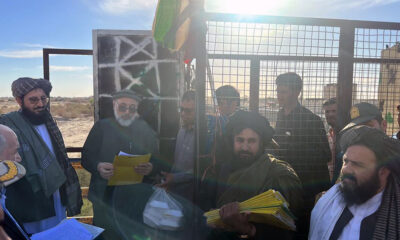
 Latest News5 days ago
Latest News5 days agoAfghan prisoners in Iran sent home
-
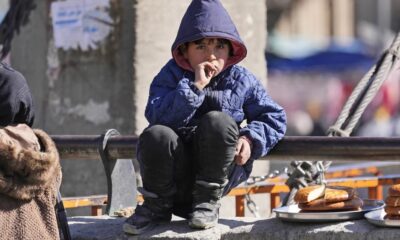
 Latest News5 days ago
Latest News5 days agoAfghanistan ranks last in World Happiness Report
-
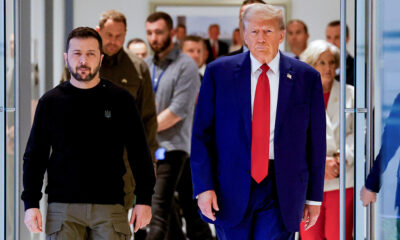
 World5 days ago
World5 days agoTrump, Zelenskiy pledge in phone call to work for end to war in Ukraine
-

 Regional5 days ago
Regional5 days agoMacron and Saudi Crown Prince discuss Gaza, Ukraine peace process
-
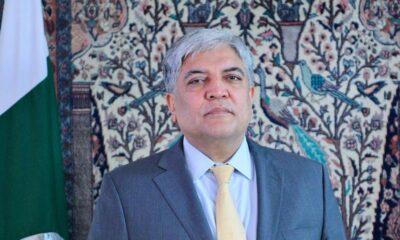
 Latest News4 days ago
Latest News4 days agoPakistan once again urges IEA to act against militants
-
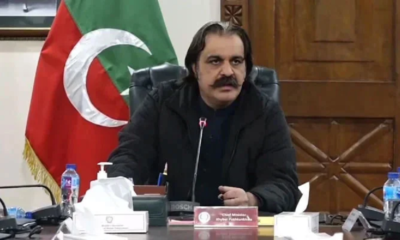
 Latest News5 days ago
Latest News5 days agoKhyber Pakhtunkhwa chief minister opposes military operations in the province
-
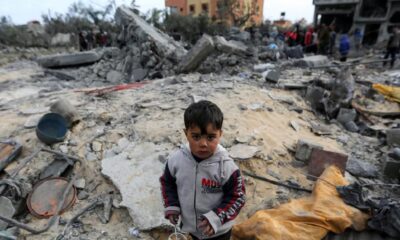
 Regional4 days ago
Regional4 days agoAt least 91 killed in Gaza as Israel abandons ceasefire, orders evacuations
-

 Sport4 days ago
Sport4 days agoAFC Beach Soccer: UAE thrash Afghanistan 7-1 in opener


